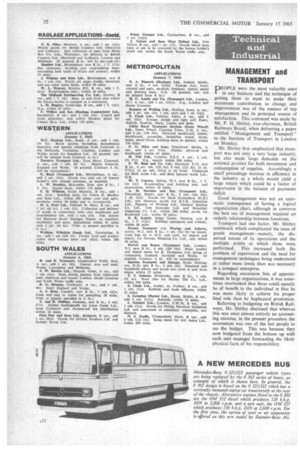Technical and Industrial MANAGEMENT and TRANSPORT
Page 34

If you've noticed an error in this article please click here to report it so we can fix it.
PEOPLE were the most valuable asset in any business and the technique of getting them to want to make their maximum contribution to change and improvement was of the essence of top management and its principal source of satisfaction. This comment was made by Mr. P. H. Shirley, vice-chairman, British Railways Board, when delivering a paper entitled "Management and Transport" to the Institute of Transport in London on Monday.
Mr. Shirley first emphasized that transport was not only a very large industry, but also made large demands on the national product for both investment and consumption of supplies. Accordingly a small percentage increase in efficiency in the industry as a whole would yield a large return which could be a factor of importance in the balance of payments deficit.
Good management was not an automatic consequence of having a logical organization chart, although in converse the best use of management required an orderly relationship between functions.
Transport had one factor, Mr. Shirley continued, which complicated the issue of goods management-namely, the dispersed nature of its operations and the multiple points at which those were performed. This increased both the problem of supervision and the need for management techniques being understood at rather more levels than was necessary in a compact enterprise.
Regarding succession lists of appointments in large organizations, it was sometimes overlooked that these could equally be of benefit to the individual in that he was more likely to achieve his proper final role than by haphazard promotion.
Referring to budgeting on British Railways, Mr. Shirley disclosed that whereas this was once almost entirely an accounting exercise, in the present procedure the accountant was one of the last people to see the budget. This was because they now budgeted from the bottom up with each unit manager forecasting the likely physical facts of his responsibility.
























































































































